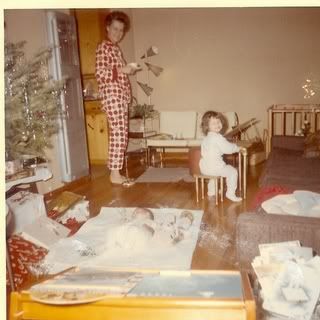I've mentioned here that I was senior editor on a big old doorstop of an academic book, the
Bloomsbury Handbook to Agatha Christie. When the Bloomsbury editor approached me to edit it, he said that he was envisioning it as the first reference book intended to present an overview of the scholarly work being done on Christie.
It was a little hard to believe that there had never been such a book in the century since she began writing, especially since she is widely described as the bestselling novelist of all time, as well as the author of the bestselling novel of all time,
And Then There Were None, not to mention the longest-running play of all time,
The Mousetrap. In one of the chapters I wrote for the book, I dig into the reasons for the decades of neglect of Christie's work. Some of it is probably because she was, and is, just so freakin' popular that it was uncool to take her work seriously. If a lot of people like it, the thinking went, then it can't be good. Eventually, that argument wore thin, and now there is a body of scholarship that's robust enough to justify the book that I just co-edited.
Anyway, the mystery community has embraced our book, as evidenced this month by recognition from two of the most prestigious award organizations in my field. The
Bloomsbury Handbook to Agatha Christie is a finalist for both Mystery Writers of America's Edgar Allan Poe Award and Malice Domestic's (appropriately named) Agatha Award.
The Edgars are selected by committees of published mystery writers, so it's a peer-selection thing like the Oscars. The Agatha is chosen by mystery readers, so I guess that's like a People's Choice kind of thing.
The awards banquets are at the end of April, so I'll let y'all know how things go. They are black tie events, so I bought a black-and-spangled dress and a pair of satin shoes as soon as I heard about the Edgar nomination. I'll probably go buy another one for the Agathas.

Quirt is going suit shopping soon.
Speaking of Quirt, when the invitation to edit came in, I was fretting about when I'd find time to do this thing, but he said, "You just can't turn this one down." So I didn't. He gets a lot of credit for all this, especially since my doing the book while I was teaching and writing two novels meant that he listened to me whine for two years.
I had a similar fretting session with my agent, wondering if I should really take on such a big project. She said, "You know, they give Edgars for this kind of thing." When I got word that the book was nominated, I wrote her to say, "You were right."
 well-temperedforum.groupee.net
well-temperedforum.groupee.net  The Well-Tempered Forum
The Well-Tempered Forum  Off Key
Off Key  I've had some good news over the past couple of weeks.
I've had some good news over the past couple of weeks.










 well-temperedforum.groupee.net
well-temperedforum.groupee.net  The Well-Tempered Forum
The Well-Tempered Forum  Off Key
Off Key  I've had some good news over the past couple of weeks.
I've had some good news over the past couple of weeks.